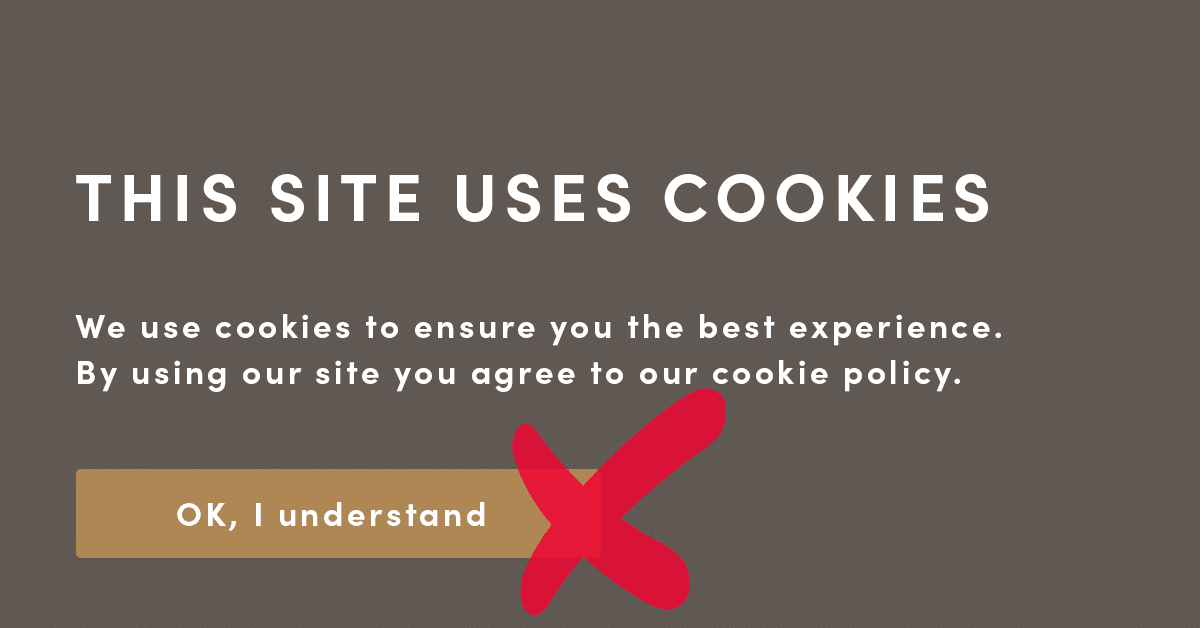พ.ร.บ.คุ้มครองข้อมูลส่วนบุคคลของประเทศไทยและคุกกี้
ก่อนอื่น พระราชบัญญัติคุ้มครองข้อมูลส่วนบุคคลของประเทศไทย พ.ศ. 2562 (‘PDPA’) กฎหมายทั้งฉบับจะมีผลใช้บังคับอย่างเต็มรูปแบบในวันที่ 1 มิถุนายน 2564.
PDPA ของประเทศไทยมีความคล้ายคลึงกับ European General Data Protection Regulation (GDPR) ในการประมวลผลข้อมูลของบุคคล.
อย่างไรก็ตาม PDPA ไม่ได้เกี่ยวข้องกับการใช้คุกกี้เป็นพิเศษ แต่ก็เกี่ยวข้องกับการประมวลผลข้อมูลที่รวบรวมผ่านคุกกี้ที่จัดเก็บบนอุปกรณ์ของผู้ใช้เช่นคอมพิวเตอร์แท็บเล็ตและสมาร์ทโฟน.
จุดประสงค์ของกฎหมาย PDPA คือการตั้งกฎและข้อบังคับว่าเว็บไซต์และเจ้าของแอปจะรวบรวมและประมวลผลข้อมูลส่วนบุคคลของผู้ใช้ได้อย่างไรเช่นผ่านการใช้คุกกี้.
เหตุใดคุกกี้จึงอยู่ภายใน PDPA?
เนื่องจากคุกกี้อาจรวบรวมข้อมูลส่วนบุคคล เช่น เลขที่อยู่ไอพี, ตัวระบุ,โลเคชั่น, รหัสอุปกรณ์และอื่นๆ ซึ่งในที่สุดก็สามารถระบุผู้เยี่ยมชมได้ทั้งทางตรงและทางอ้อม ดังนั้นคุกกี้จึงอยู่ภายใน PDPA.
ตอนนี้เว็บไซต์ทั้งหมดใช้คุกกี้หรือเทคโนโลยีการติดตามอื่น ๆ เพื่อวัดว่าผู้เยี่ยมชมเข้ามาทางใด, พวกเขาสนใจดูอะไรบ้างและที่สำคัญที่สุดคือสิ่งที่พวกเขาซื้ออะไรบ้าง.
เมตริกเหล่านี้มีความสำคัญสำหรับเว็บไซต์อีคอมเมิร์ซหรือเว็บไซต์ธุรกิจอื่นๆ ที่ต้องการเพิ่มประสิทธิภาพการตลาดและปรับปรุงยอดขาย – เพื่อที่จะใช้คุกกี้.
โดยทั่วไปคุกกี้จะถูกตั้งค่าบนเว็บไซต์โดยบุคคลที่สามซึ่งมีบริการที่ใช้สำหรับการวิเคราะห์ แชร์ / ไลค์ หรือลักษณะอื่นๆ ที่นำผู้เยี่ยมชมเข้าสู่เว็บไซต์ขององค์กรต่างๆนั่นอาจเป็นระบบการจัดการลูก (เช่น HubSpot, Salesforce) บริการวิเคราะห์ (เช่น Google Analytics, Adobe Analytics) หรือ tracking pixel การติดตามจาก Facebook, LinkedIn หรือโซเชียลมีเดียอื่นๆ ที่ใช้สำหรับการโฆษณาที่กำหนดเป้าหมายใหม่ (retargeting)
หมายเหตุ: ในฐานะเจ้าของเว็บไซต์คุณเป็นผู้ควบคุมข้อมูล (data controller) ดังนั้นจึงต้องรับผิดชอบในการขอความยินยอมที่ถูกต้องของผู้เยี่ยมชมต่อคุกกี้ที่กำหนดโดยบุคคลที่สามบนเว็บไซต์ของคุณ
วิธีการปฏิบัติตามกฎหมาย PDPA มีอะไรบ้าง?
การปฏิบัติตาม PDPA เมื่อใช้คุกกี้บนเว็บไซต์จำเป็นต้องได้รับความยินยอมที่ถูกต้องจากผู้เยี่ยมชมในการใช้คุกกี้
ไม่ได้หมายความว่าจะแจ้งให้เจ้าของข้อมูลทราบเกี่ยวกับคุกกี้เท่านั้น (ด้วยคุกกี้แบนเนอร์แบบธรรมดาทั่วไป) แต่หมายถึงการแจ้งให้เจ้าของข้อมูลทราบเกี่ยวกับคุกกี้การรวบรวมและการจัดเก็บความยินยอมของเจ้าของข้อมูลด้วยกับข้อมูลนี้ผู้ควบคุมข้อมูลสามารถจัดเก็บเอกสารหากผู้คณะกรรมการคุ้มครองข้อมูลส่วนบุคคลต้องการตรวจสอบ
ที่นี่เราจะแสดงให้คุณเห็นสองแบนเนอร์ สีน้ำตาลคือสิ่งที่คุณมักจะเห็นในเว็บไซต์ทั่วไป ตัวนั้นจะแจ้งให้ผู้เยี่ยมชมทราบเกี่ยวกับคุกกี้แล้วจึงบอกว่า:ในกรณีที่คุณใช้งานเว็บไซต์คุณได้ทำการยอมรับให้ใช้คุกกี้
ปัญหาคือเว็บไซต์นี้ไม่สามารถให้เจ้าของข้อมูลปฏิเสธได้ และรายละเอียดเกี่ยวกับคุกกี้ที่รวบรวมและประมวลผลข้อมูล เหล่านี้ไม่ได้ แจ้งให้ชัดเจน ตามกฎหมาย

แบนเนอร์สีฟ้าก็จะเป็นอีกแบบ แบนเนอร์สีฟ้าก็จะเป็นอีกแบบ มีการขอความยินยอมที่ให้ไว้โดยอิสระและชัดเจนในการให้ความยินยอมให้ใช้คุกกี้ ผู้ควบคุมข้อมูลให้การขอความยินยอมที่ชัดเจน(ข้อมูลเกี่ยวกับคุกกี้และฟังก์ชันที่มีให้)และจัดเก็บความยินยอมของผู้เยี่ยมชมทุกคนเพื่อเป็นเอกสารต่อเจ้าหน้าที่ในกรณีที่มีการตรวจสอบ
วิธีการตรวจสอบการรวบรวม
ความยินยอมที่ถูกต้องต่อคุกกี้
- ตั้งค่าคุกกี้แบนเนอร์ที่แจ้งให้ผู้เยี่ยมชมเว็บไซต์ทราบเกี่ยวกับคุกกี้ต่างๆ: ข้อมูลใดที่พวกเขารวบรวม, ผู้รวบรวมข้อมูลคือใคร, และเก็บระยะเวลาเท่าไหร่
- ความยินยอมต้องขอก่อนจะมีการประมวลผลเกิดขึ้น จึงต้องบล็อกคุกกี้ต่างๆจนกว่าผู้เยี่ยมชมของคุณจะยินยอมให้คุณใช้คุกกี้
- ความยินยอมต้องชัดเจนไม่คลุมเครือจึงต้องเสนอวิธีง่ายๆให้ผู้เยี่ยมชมเว็บไซต์ในการเปลี่ยนแปลงหรือถอนความยินยอมในการใช้คุกกี้
- จัดเก็บความยินยอมเป็นเวลา 5 ปี
บทสรุป เมื่อใดก็ตามที่บุคคลเข้าสู่เว็บไซต์ของคุณ คุณต้องขอความยินยอมในการใช้คุกกี้ (คุกกี้ป๊อปอัป) หากผู้เยี่ยมชมเว็บไซต์ปฏิเสธคุณต้องนับถือการเลือกของเจ้าของข้อมูลโดยไม่ตั้งค่าคุกกี้
* คุกกี้สามารถบล็อกได้โดยคุกกี้แบนเนอร์จนกว่าจะได้รับความยินยอม
Cookie Information สามารถช่วยคุณได้อย่างไร
หากท่านต้องการข้อมูลเพิ่มเติมเกี่ยวกับวิธีดำเนินการปฏิบัติตามกฎหมายพรบคุ้มครองข้อมูลส่วนบุคคลในวันที่ 1 มิถุนายน 2564 สามารถนัดประชุมกับผู้จัดการของเรา; Salee Yemram
เราจะช่วยเหลือและแนะนำธุรกิจของคุณไปพื้นฐานที่ปลอดภัยและให้ความสำคัญกับกลยุทธ์ความเป็นส่วนตัวของบริษัทของคุณ
การปฏิบัติตาม PDPA ไม่ได้เพียงแต่เกี่ยวกับกฎหมายเท่านั้น กฎหมายออกมาเพื่อให้การแสดงให้บุคคลลูกค้าในประเทศไทยเห็นว่าคุณนับถือเกี่ยวกับความเป็นส่วนตัวออนไลน์ของพวกเขา
จองการประชุม
หากคุณไม่แน่ใจว่าจะเริ่มต้นตรงไหนจะเลือกแพคเกจอันไหน คุณสามารถจองการพูดคุยกับผู้เชี่ยวชาญด้านการปฏิบัติตามข้อกำหนดของเราเพื่อค้นหาบริการที่เหมาะกับเว็บไซต์ของคุณที่สุด

